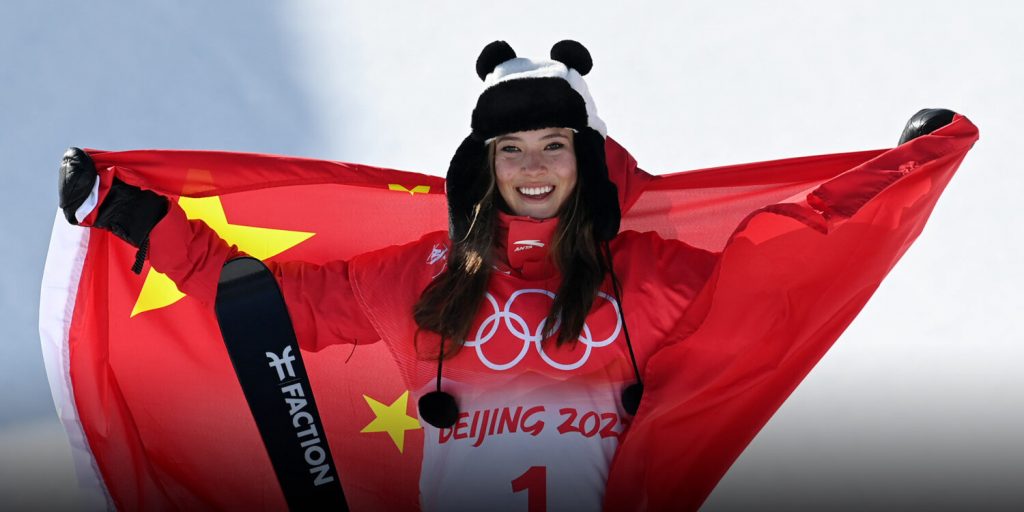The 18-year-old skier has dominated this year’s Olympics like no one else.

Depending on your perspective, she’s either American as apple pie or the quintessential product of Chinese “tiger parenting” — a traitor or a trailblazer. But if there’s one thing we should all be able to agree on, it’s that Eileen Gu has dominated the Beijing Winter Olympics like no one else.
Just 18 years old, Gu won two golds and one silver medal in three competitions at this year’s games, making her the first-ever freestyle skier to win three medals at the same Olympics. Popular even before her trips to the medal podium — the aspiring athlete and model had signed more than 20 endorsement deals and took home an estimated 200 million yuan ($31 million) last year — Gu just vaulted her way into the country’s sports pantheon alongside greats like Yao Ming, hurdler Liu Xiang, and French and Australian Open winner Li Na. Her every move, from which Beijing cram school she attended to her choice of snack on the slopes, is dissected by tens of millions of fans.
Her success has come at a price, however. Across the Pacific, the American-born Gu has been subjected to a much harsher form of scrutiny since choosing in 2019 to compete for China rather than her country of birth. Fox News host Will Cain deemed her “ungrateful”; his colleague Tucker Carlson called her choice “dumb.” Attitudes toward Gu on Western social media often reflect a toxic mix of nationalism, racism, Orientalism, and misogyny.
The backlash reminds me of an old Chinese sports story. In the early 1990s, table tennis player He Zhili, a member of the Chinese national team, switched nationalities and began competing for Japan. Playing under the name Koyama Chire, she took home the gold medal in the women’s singles competition at the 1994 Asian Games, beating Chinese athletes in successive matches in the process. At the time, Chinese attitudes toward He were vitriolic: She was criticized as a “traitor,” with angry fans likening her to the collaborators who assisted the Japanese army during the Second World War. Continue to read the full article here
– This article originally appeared on Sixth Tone.





